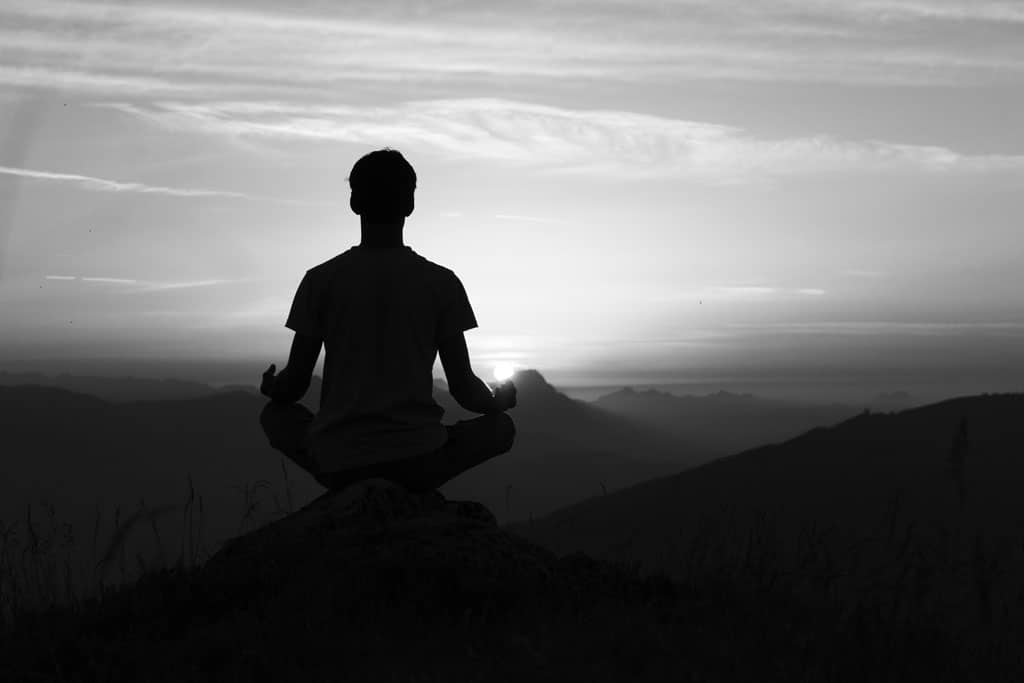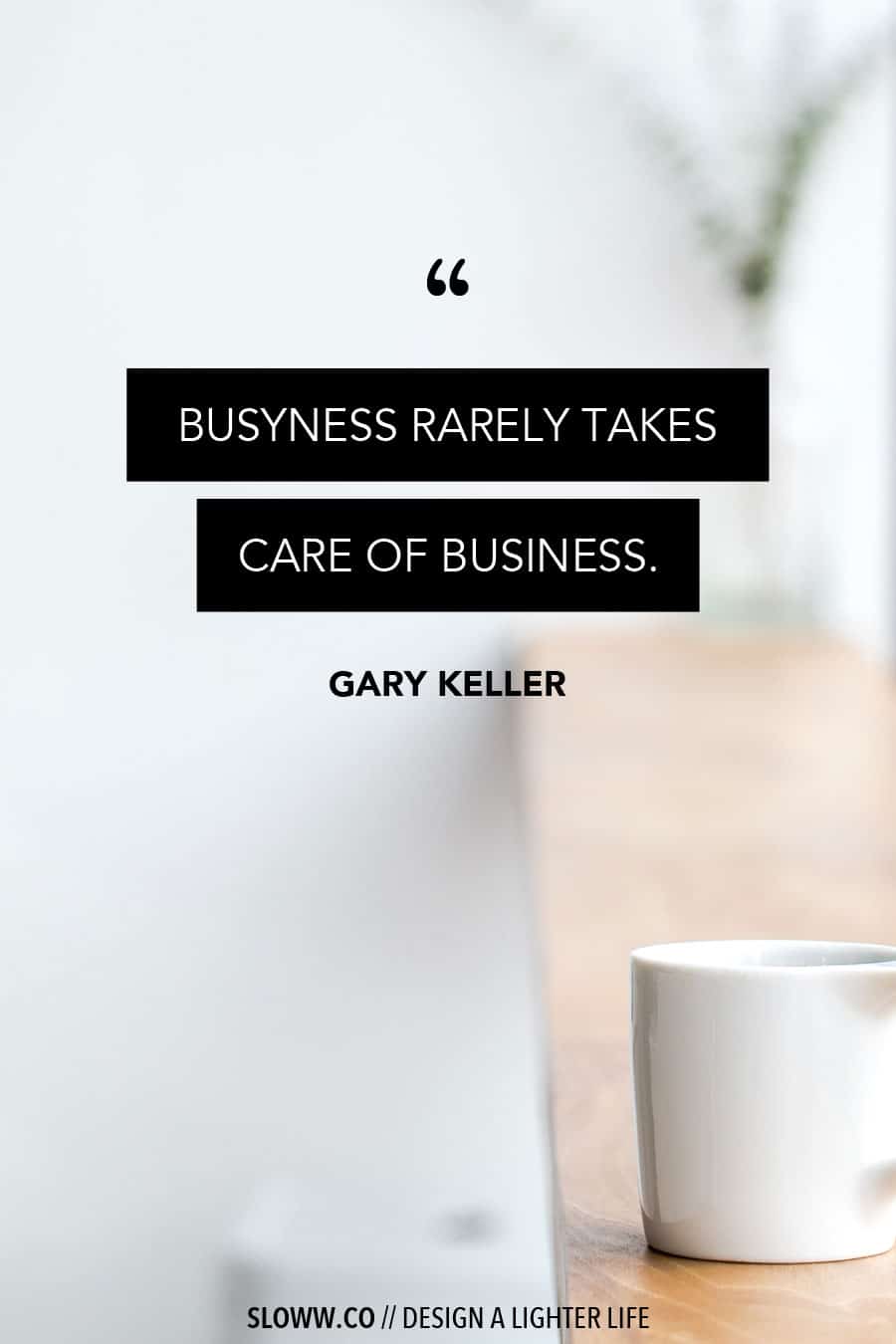
This is the third post in the 3-part series on busyness. You can read the other two posts here:
- Busyness 101: Why are we SO BUSY in Modern Life? (7 Hypotheses)
- Busyness 201: A Brief History of Work & BUSY in America
I’ve also recently expanded on the busyness series with these posts you may also like:
- The Busy Spectrum (High Busyness): What You Need to Know about Workism & Hustle Porn
- The Busy Spectrum (Low Busyness): What You Need to Know about Bullshit Jobs & Performative Busyness
Status symbols have evolved from leisure time to stuff to busyness. But, if busyness is the current status symbol, that means it won’t be trendy forever. So, what’s that mean for the future of busyness, and what’s the next status symbol?
The Future of Busyness
No matter which hypothesis you believe for why we are (or at least feel) so busy today, you’ve likely seen busyness affecting not only work but also your entire life:
- “The consumption of free time is increasingly ‘harried’ and characterized by an acceleration of the pace at which leisure is enjoyed.” — Semantic Scholar¹
This will probably continue for awhile as people shift spending to experiences over things to avoid FOMO (Fear Of Missing Out). Just like materialism meant the more things the better, experiencism (Or experientialism? Are either of those words yet?) means packing your calendar with experiences.
But, a jam-packed and rushed life is not sustainable. The health impacts of 24/7 busyness are starting to catch up with us:
- “It is interesting that people find the busy lifestyle so aspirational and associate it with status given that the downsides of this lifestyle are often acknowledged and discussed (e.g., the negative impact on happiness, wellbeing, and health).” — Semantic Scholar¹
The glorification of busy will (hopefully) come to an end when people get “sick and tired of being sick and tired” and/or busyness becomes so common that it’s no longer aspirational. The latter is already starting:
- “Of course, the more people brag about how busy they are, the more common it becomes, and as that happens, particularly in workaholic cultures, status symbols, just like fashions, are likely to change…It becomes mainstream…For signals of status to operate, they need to be visible and they need to be costly. And visibility is compromised if everyone else is doing it too.” — Washington Post²
- “In Silicon Valley, apparently, I’ve heard that actually it’s not very fashionable to show that you’re working all the time, even if you are. So maybe there, just because they’re entrepreneurs working all the time, it’s taken for granted that you’re working all the time. It’s actually that if you have time to go for a hike or on a bike ride, you’re cooler.” — The Atlantic³
We’ve already covered the possibility of shorter workweeks in previous posts. The most recent, modern prediction I’ve seen is from Jack Ma, billionaire founder of Alibaba, who predicts a 16-hour workweek by 2047.
- “Time affluence means becoming affluent from a time perspective, rather than from a money perspective. When we’re time affluent, it allows us to pursue values and activities like personal growth, personal connections, and our relationship to our broader community. These values, in turn, do a good job of satisfying our psychological needs and promoting higher levels of well-being.” — Johns Hopkins4
If the saying “more money, more problems” has validity, does “more time, more problems” ring true too?
Let’s talk about Idleness — What does it have to do with the Future of Busyness?
Apparently, a lot.
Defining Idleness:
- “Importantly, idleness is distinct from recuperation and active leisure. We theorize recuperation as the oft necessary break that people voluntarily take between engagement with tasks, during which they use the non-occupied time to rest, refresh, and re-energize to engage more fully in upcoming goal pursuits. Thus, recuperation can be an instrumental use of time to maximize the experience of subsequent busyness. Distinct from both idleness and recuperation, active leisure is the voluntary use of time on entertainment and relaxation. In this sense, our definition of idleness is akin to what is often referred to as passive leisure, whereas active leisure is a type of busyness.” — Idleness versus Busyness5
Definition Cheat Sheet:
Idleness: Passive leisure
Recuperation: Voluntary breaks of non-occupied time between tasks to rest, refresh, re-energize
Active Leisure: Voluntary use of time on entertainment and relaxation (a type of busyness)
Why do people do anything at all? One study suggests that (through evolution) modern humans have excessive energy that we need to release through purposeful action:
- “We speculate that the concurrent desires for busyness and for justification are rooted in evolution. In their strife for survival, human ancestors had to conserve energy to compete for scarce resources; expending energy without purpose could have jeopardized survival. With modern means of production, however, most people today no longer expend much energy on basic survival needs, so they have excessive energy, which they like to release through action. Yet the long-formed tendency to conserve energy lingers, making people wary of expending effort without purpose.” — Idleness Aversion and the Need for Justifiable Busyness6
- “There are many apparent reasons why people engage in activity, such as to earn money, to become famous, or to advance science. In this report, however, we suggest a potentially deeper reason: People dread idleness, yet they need a reason to be busy.” — Idleness Aversion and the Need for Justifiable Busyness6
People generally try to avoid idleness and wasting time, and they want meaning in life:
- “We propose that the desire to avoid an unproductive use of time and the ceaseless pursuit of meaning in life may underlie many human activities.” — Idleness versus Busyness5
- “Specifically, we propose that people have two concurrent, yet paradoxical and conflicting, desires: They (a) dread idleness and desire busyness, but (b) need reasons for their busyness and will not voluntarily choose busyness without some justification.” — Idleness Aversion and the Need for Justifiable Busyness6
Consider this — Engaging in activity and avoiding idleness drive everything else we do:
- “In particular, while it has been long presumed that people engage in activities in order to pursue goals, we posit a reverse causality: people pursue goals in order to engage in activities.” — Idleness versus Busyness5
- “People often say they work hard so that they can be idle. Increasing empirical evidence suggests an alternative interpretation — we work hard to avoid being idle. Unlike other resources, time is non-stoppable, non-transferrable, and non-renewable. An individual’s consumption of time is essentially the individual’s use of life. In idleness, time breeds misery. In busyness, time generates happiness, as long as it is used toward a purpose, even a feebly justifiable one.” — Idleness versus Busyness5
- “Most people dread idleness and enjoy at least a moderate level of busyness. Yet busyness perse does not guarantee an efficient use of time because purposeless busyness merely fills time by using up energy and other resources. Thus, people desire busyness that is purposeful, or that at least seems purposeful.We hence propose that, while it has been long presumed that people engage in busyness in order to pursue goals, it is possible that people pursue goals in order to engage in busyness.” — Idleness versus Busyness5
Use of time will change with future advancements, but the eternal pursuit of purpose will remain:
- “A sound understanding of idleness and busyness is particularly relevant for the development of future human societies in which technological advances will pose increasing challenges on the constructive uses of time and the pursuit of purposefulness for individual existence. In the recent past of human history when productivity was low, people had to work hard to survive. Idleness was a luxury for the rich. Modernization has elongated people’s lifespan, freed many from devoting most of their time for survival needs, and increased their freedom over the discretionary use of time and the pursuit of purposefulness. As technologies advance further, more of us will be made somewhat useless by AI doctors, driverless cars, and robotic waiters, among others. The day that most of us will not have to work is approaching. Nonetheless, the eternal search for a productive and purposeful life will not cease in future human societies. With progressively less need to work, how can people use their abundance of time purposefully? Engaging in sports and games, self-development, scientific research, hobbies, or destructive behaviors? As we move forward, it ought to be understood that the relative affluence of time does not guarantee the ultimate freedom of human existence, but rather escalates the need for purposeful busyness.” — Idleness versus Busyness5
How I Interpret the Future of Busyness
Let’s quickly recap:
- We are no longer using most of our time and activity just to survive. Relatively, we now have an abundance of time for discretionary use (“time affluence”).
- We have excessive energy, and people will continue to engage in activity to fill their time. But, time use will look different in the future due to technological advancements.
- People will still desire purposeful action in the future.
We’ve seen the past essays from John Maynard Keynes or Bertrand Russell. And, we’ve seen the current predictions from people like Duane Elgin who believes humanity is currently in a teenage stage of development and will evolve through simplicity.
Everyone wants a full life, not a busy life. A life where you can better manage your mental bandwidth. After all, your entire life is only 1% of recorded history.
Just like there’s been push back with simple living and minimalism on the stuff side, I believe there’s going to be push back with slow living on the time side.
Ready to slow down and become unbusy? Here’s your how-to guide:
- What is Downshifting? How to Transition into Simple Living
- Slow Living 101: What is Slow Living?
- Slow Living 201: A Deep Dive into Slow Living & The Slow Movement
- Slow Living 301: How to Start a Slow Living Lifestyle
- 7 Unbusy Tips for the Daily Work Grind (Reader Q&A)

Sources:
- https://pdfs.semanticscholar.org/454d/041ddb0eacd1e8fa94460c11d8311154f17d.pdf
- https://www.washingtonpost.com/news/on-leadership/wp/2016/12/20/how-busyness-became-a-bona-fide-status-symbol/?utm_term=.c2da2efb13fa
- https://www.theatlantic.com/business/archive/2017/03/busyness-status-symbol/518178/
- https://www.johnshopkinshealthreview.com/issues/spring-summer-2016/articles/the-cult-of-busy
- http://faculty.chicagobooth.edu/christopher.hsee/vita/papers/IdlenessBusyness.pdf
- https://pdfs.semanticscholar.org/af5b/5c708a986b4822a37147918d86bb47db1c8a.pdf?_ga=2.260545162.661802267.1536440951-1400585481.1536440951




